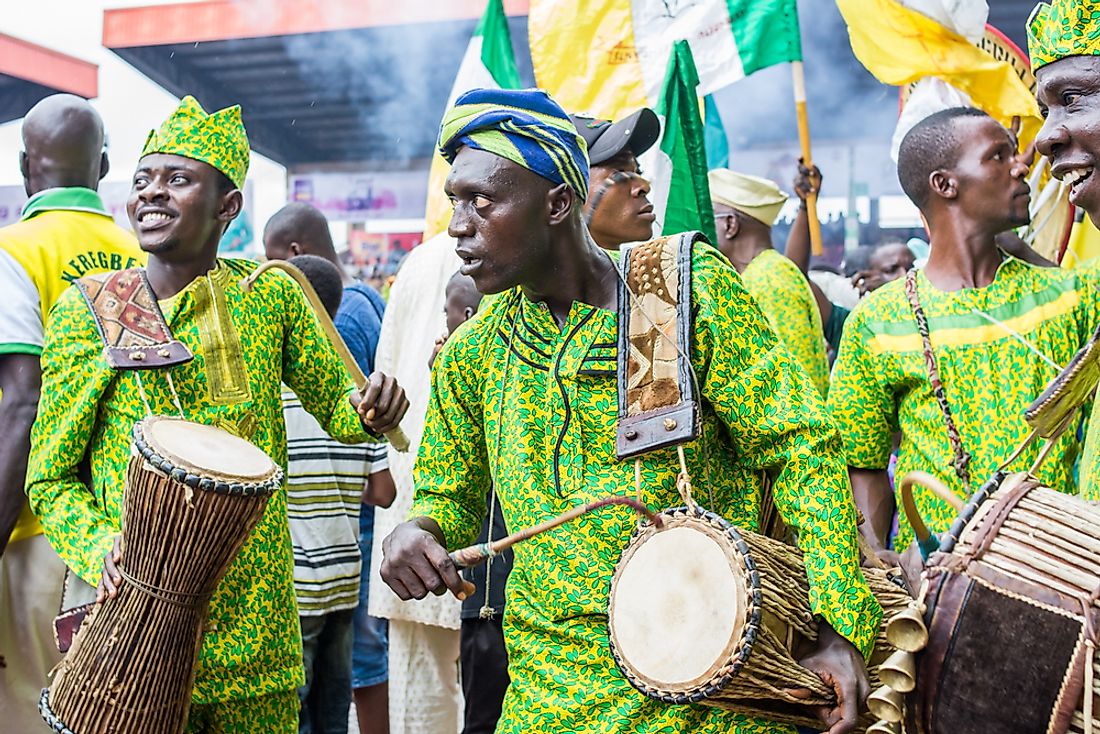Who Are The Yoruba People?

5. Yoruba Diaspora
The Yoruba have for centuries lived in what is now Nigeria and Benin, where they had even founded great African empires. The majority of their population, about 40 million strong today, is in the so called "Yorubaland" in Western Nigeria, Benin, and Togo. They are one of the largest groups of ethnic Africans on the continent. The Igala tribes in southeast Benin are related to the Yoruba, as are the Ewe, Fon, and Egun. The Yoruba has become scattered across the New World and the Mediterranean as well, particularly during the days of institutionalized slave trade. Those of Yoruba ancestry can be found in Santa Lucia, Brazil, Cuba, Grenada, and Trinidad and Tobago. The more recent generations have freely moved to the United Kingdom and the United States since the 1970s.
4. Early History and Kingdoms
In the 8th Century BCE, the Yoruba kingdom reigned in the Ile-Ife region located south of the Sub-Saharan Sahel. In the 11th Century, the Yoruba became a cultural entity in what is now Nigeria. At that time, the Yoruba people already lived in fortresses with high walls, and had a population of 100,000, surpassing many other populated areas, though still not comparable to the most populated city in Africa today, which is Lagos, Nigeria with 20 million people. The 12th Century Yoruba had advanced in art, and by the 14th Century had perfected their crafts in sculpture, weaving, and creating regalia. This age was the Golden Age of the Yoruba. Thus, the Oyo Yoruba empire was established from the 11th Century on, lasting into the 17th Century. In the 18th Century, the Egba people raised a covert resistance to the Oyo empire, and the 19th Century saw tribal alliances resisting the Oyo expansion.
3. Traditional Ways of Life
Traditional Yoruba life was dictated by elected priestly monarchs and a council of other minor noble leaders. Pomp and ceremony also dominated the Yoruba's way of life. Music also plays a significant role in all aspects of village life, and it even accompanied the slave trade across the Atlantic Ocean into North America, South America, and the Caribbean Islands. Musicians were a central presence at celebrations, and the Yoruba always dressed in colorful costumes on these occasions. The Yoruba celebrate around 13 important festivals annually. Religious festivals are also popular events that attract thousands around the region, and drums are an essential part of the music during these religious celebrations.
2. Notable Yoruba
The Yoruba is a major cultural presence in Nigeria and Benin, as well as much of Africa as a whole. They have also migrated into many parts of the world, and continued on to become famous citizens of those diverse foreign countries. These people have in fact often become international stars in their chosen fields. The following are some of the most well-known Yorubas, and they arise from a number of different countries from around the world. Such notable people of Yoruba ancestry are Cassandra Wilson, Femi Emiola, Glenda Hatchett, Nas, Wale, Donald Faison, Angélique Kidjo, Rockmond Dunbar, Brendon Ayanbadejo, Kareem Abdul-Jabbar, DeLisha Milton-Jones, Hakeem Olajuwon, Safiya Songhai, and Adewale Ogunleye. Other talented Yoruba are Hope Adelaide Wilson, Adepero Oduye, David Oyelowo, Richard Ayoade, Adetomiwa Edun, Adewale Akinnuoye-Agbaje, Jacob Taio Cruz, and Hakeem Kae-Kazim. These talented Yoruba people include among them British actors, Hollywood stars, rappers, singers, and National Basketball Association players, among other professions.
1. External Threats and Territorial Disputes
The Nigerian history of numerous coups and civil wars has added tragedy into recent Yoruba history. Differences in politics and religion have also contributed to the ills that have pervaded Nigeria. Tribal rivalry had resulted in riots on May 29th, 1962, and saw the Yoruba being subjected to increased discrimination. Then, with the 1966 coup by the Ibo (Igbo) people, there resulted the slaughter of a number of Northern Ibo people. Resource control over the oil largess in the Niger Delta also resulted in 12 days of fighting between the Niger Volunteer Force, a militia group out to get its fair share, and the state-supported Nigerian Armed Forces. Religion also figures in the rivalry between tribes in Nigeria, as in the Kano Riot of May 1st, 1953 against non-Muslims. Land disputes between Cameroon and Nigeria are another source of conflict that the Yoruba all too often find themselves mixed up in.











